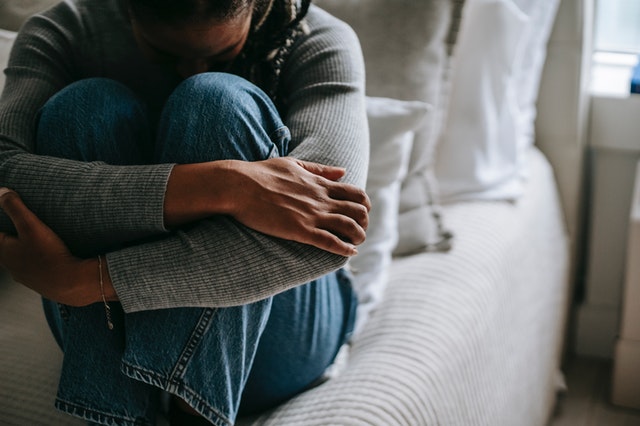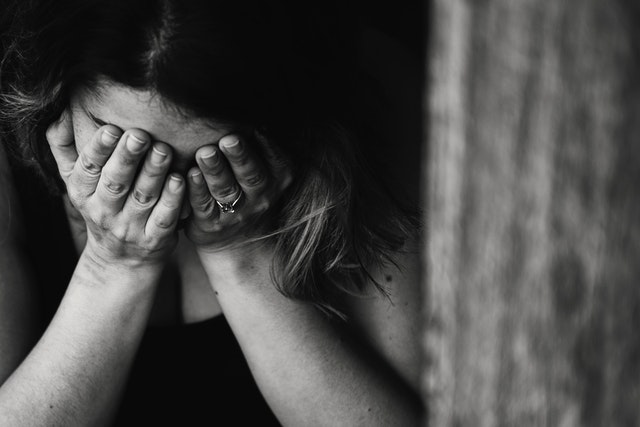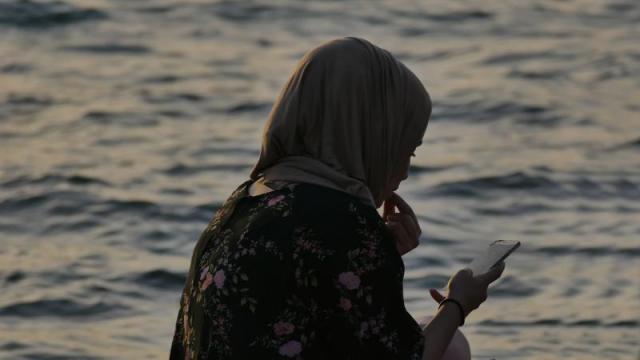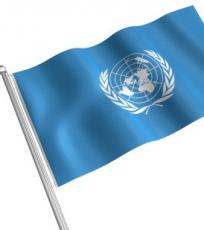Consultation on legislative proposal to address slavery and worker exploitation
Tue 17 May 2022
The Ministry of Business Innovation and Employment (MBIE) is seeking feedback on a proposal to address modern slavery and worker exploitation.

Consultation on modern slavery and worker exploitation
MBIE is seeking feedback on a proposed legislative response to modern slavery and worker exploitation.
The closing date to make a submission is 7 June 2022.
According to the MBIE consultation webpage:
"The proposal would create new responsibilities across the operations and supply chains of all types of organisations in New Zealand, with more responsibilities for larger organisations:
- All organisations would be required to take action if they become aware of modern slavery or worker exploitation
- Medium and large organisations would be required to disclose the steps they are taking
- Large organisations and those with control over New Zealand employers would be required to undertake due diligence.
The primary objective for the proposals set out to:
- reduce modern slavery and worker exploitation in New Zealand and elsewhere, helping to build practices based on fairness and respect."
The consultation discussion document defines modern slavery to include forced marriage and human trafficking:
"Modern slavery broadly reflects exploitative situations that a person cannot leave due to threats, violence, coercion, deception, and/or abuse of power. For the purpose of this discussion document, we are proposing that modern slavery be defined as including the legal concepts of forced labour, debt bondage, forced marriage, slavery and slavery like practices, and human trafficking." (page 13, emphasis added)
However, the document also states that the consultation proposals do not address forced marriage:
"Women and girls accounted for 71 per cent of modern slavery victims, including 63 per cent of victims of forced labour and 84 per cent of victims of forced marriage, and children account for one in four victims of modern slavery. The UN Human Rights High Commissioner and the ILO has warned that the number of victims of modern slavery could significantly increase as a result of COVID-19. The UN Secretary General Report on trafficking in women and girls acknowledges that 'the harms of trafficking are known to be more severe for women and girls than for men and boys given the exposure of the former to specific forms of exploitation such as sexual exploitation and violence, domestic servitude and forced marriage.' The proposals in this paper are not targeted at addressing forced marriage." (page 29, emphasis added)
The MBIE consultation webpage outlines the information they want to know as:
"We want to know how best to facilitate lasting cultural change and encourage best practice to support freedom, fairness and human dignity across the operations and supply chains of entities.
We also want to know about the impact of the proposals on victims and survivors, entities of all types, and individuals. We want to know what you think the benefits of the proposals and options might be, as well as their costs. We also want your ideas about how the proposals and options could be designed and implemented effectively."
In his foreword to the discussion document, Minister for Workplace Relations and Safety Michael Wood said "We want to hear from victims and survivors, from all types of organisations, and from individuals."
The discussion document includes a summary list of questions on pages 17 - 23. Feedback can be emailed to modernslavery@mbie.govt.nz or posted to International Labour Policy, Workplace Relations and Safety Policy, Ministry of Business, Innovation & Employment, PO Box 1473, Wellington 6140.
If your time is limited, MBIE has provided a brief summary discussion document and a short online survey. There is also a one-page overview of the proposal.
The closing date for submissions is 7 June 2022.
The Centre for Research on Modern Slavery at the University of Auckland Business School and World Vision New Zealand are hosting a webinar on 18 May 2022 on What can New Zealand learn from modern slavery legislation in Australia, the European Union and the United Kingdom?
Update: Equal Employment Opportunities Commissioner, Dr Saunoamaali’i Karanina Sumeo, said on social media that the NZ Human Rights Commission is also interested in engaging with organisations and advocates in this space. Join the conversation and contact them at endslavery@hrc.co.nz.
Background and more information
In 2018, the UN Committee on the Elimination of Discrimination against Women in their Concluding Observations on New Zealand's 8th periodic report called for a number of government actions to address trafficking, including:
"28(a) Amend section 19 of the Prostitution Reform Act 2003, with a view to reducing its negative impact on migrant women;
28(b) Revise migration laws, remove the possibility of only a fine being imposed as punishment for trafficking and adopt measures aimed at preventing discrimination against women in prostitution in the State party, with a view to preventing and addressing the factors and structures that render migrant women vulnerable to trafficking;
28(c) Strengthen mechanisms to identify, protect and assist victims of trafficking and sexual exploitation, provide them with legal support and systematically collect comprehensive data about victims of trafficking and report them to the Committee in its next periodic report;
28 (d) Speedily adopt a new national action plan to combat human trafficking, in line with the Protocol to Prevent, Suppress and Punish Trafficking in Persons, Especially Women and Children, supplementing the United Nations Convention against Transnational Organized Crime;
28 (e) Revise the Crimes Amendment Act 2015 to criminalize trafficking in children even when no coercion, deception or other means of abuse of power are involved;
28 (f) Ensure that victims of trafficking are provided with adequate protection and support, including by establishing separate, well-equipped shelters with trained staff to address their specific needs and concerns and strengthen long-term reintegration measures for victims of trafficking."
In December 2020 the government published a five-year action plan to address modern slavery. Combatting Modern Forms of Slavery: Plan of Action against Forced Labour, People Trafficking and Slavery 2020-25 is a high-level framework for the actions that government agencies will take to address modern slavery and human trafficking in the areas of prevention, protection and enforcement. At the time advocates and experts called on the government to take stronger action and highlighted that the plan had gaps in addressing the disproportionate risks to children and women. The National Collective of Independent Women's Refuges submission on the draft action plan identified 10 recommendations including calling for a gendered analysis of trafficking and exploitation; a clarification of which victims and which forms of victimisation the State regards as important; a focus on vulnerability of women and girls, including as a result of gender-based violence; and a strategy to collaborate with, and use expert advice from NGOs.
Community Law Centres o Aotearoa identified risks for the exploitation of migrant women on partnership-based visas in their submission to the Parliamentary Select Committee Inquiry into migrant exploitation, writing "we believe that the vulnerability created by employer-sponsored visas is closely paralleled with that created by partner-sponsored visas and the two issues must be considered together." Attached to their submission was a previous letter to government raising concerns about the domestic violence visa scheme through Immigration NZ.
Researchers published a report outlining the need for modern slavery legislation in New Zealand. The report, Toward a Modern Slavery Act in New Zealand - Legislative landscape and steps forward (September 2021), includes an overview of definitions, legal frameworks from other countries, an overview of existing related policy in New Zealand and legislative examples from other countries.
For further background on the development of the action plan see our related news stories below.
Related news
The Human Trafficking Research Coalition has published an open letter to the government calling for amendments to the Crimes Act 1961 to provide better protections against child exploitation in Aotearoa New Zealand.
The UN Special Rapporteur on the sale and sexual exploitation of children has called for action to stop the sale and sexual exploitation of children saying "The limited application of legislative and policy initiatives represents perhaps the most significant challenge to addressing these crimes.” In her report, A practical approach to addressing the sale and sexual exploitation of children (A/HRC/49/51 - January 2022), she outlines concrete measures and good practices to tackle the sale of children for the purpose of child marriage and the sexual exploitation of children online, in prostitution and in the context of travel and tourism. She also published a checklist to help guide states in taking action to address child exploitation.
Previously related international reports include:
Gender dimension of the sexual exploitation of children and the importance of integrating a child-centred and gender-inclusive approach to combating and eradicating it (July 2021) by the UN Secretary-General
The effects of the COVID-19 pandemic on trafficking in persons and responses to the challenges: a global study of emerging evidence (July 2021) by the United Nations Office on Drugs and Crime (UNODC)
Applying Gender-Sensitive Approaches in Combating Trafficking in Human Beings (May 2021) by the Organization for Security and Co-operation in Europe
Related media
The quiet demise of the Modern Slavery Act, The Spinoff, 06.08.2024
Authorities investigate allegations Gloriavale women trafficked to India, RNZ, 27.03.2024
Modern slavery law plans up in air, Newsroom, 18.01.2024
'She led them to safety': Kiwi helps jail man who ran 'campaign of rape', Stuff, 02.07.2023
Businesses told to act on slavery, even without legislation, The Press, 28.05.2023
Sold for sex: 15-year-old exploited in Aotearoa speaks out, One News, 21.05.2023
Crises hindering victim identification: UNODC human trafficking report, UN News, 24.01.2023
Don't delay on modern slavery law, Govt told, Newsroom, 20.12.2022
Five Country Ministerial Communiqué, Beehive media release, 14.09.2022
We thought slavery was consigned to the past but it is worse than ever, Stuff, 13.09.2022
Modern slavery on the rise as crises fuel poverty - UN report, RNZ, 13.09.2022
Violence ignored in immigration changes, Newsroom, 31.08.2022
$1000 infringement fees just ‘loose change’ to exploitative employers, Newsroom, 25.08.2022
Migrants unguarded from family violence, Newsroom, 18.08.2022
Partner work visas on the chopping block, Newsroom, 21.07.2022
Proposed legislation to end modern slavery, University of Auckland news, 14.04.2022
Steps to end modern slavery - public feedback wanted, PMN News, 11.04.2022
NZ needs laws to stop modern slavery - Trade Aid boss, RNZ, 08.04.2022
Minister warns companies they 'can no longer turn a blind eye' to modern slavery, Stuff, 08.04.2022
Groups fighting child trafficking call for ‘common sense’ law changes in NZ, Te Waha Nui, 24.03.2022
Image: Alex Green from Pexels







